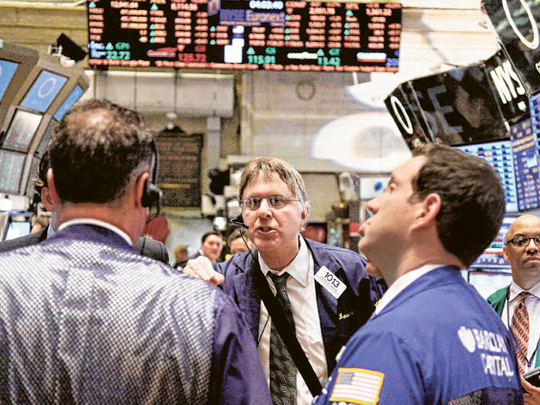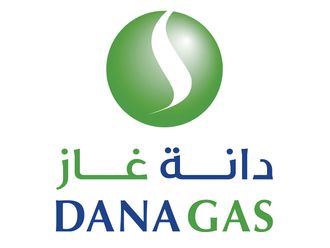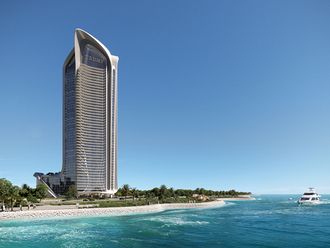
New York: The Dow edged within a whisker of the 13,000 marker on Friday, a milestone it hasn't reached since before the financial crisis brought the US economy to its knees.
The Dow Jones industrial average rose 45.79 points, or 0.4 per cent, to close at 12,949.87, its highest close for the year so far. That followed a 123-point surge the day before, when it also set a closing record for 2012.
The rest of the market struggled for direction on what turned out to be a quiet news day as traders prepared for the long Presidents' Day weekend. US markets are closed tomorrow in observance of the holiday.
The Standard and Poor's 500 rose 3.19 points, or 0.2 per cent, to 1,361.23, also setting a record close for 2012. The Nasdaq composite, after surging on Thursday, fell 8.07 points, or 0.3 per cent, to 2,951.78. Greek debt talks idled and a key economic indicator, US consumer prices, came in at about what analysts were expecting.
The Dow hasn't closed above 13,000 since May 19, 2008, a time when the administration of President George W. Bush was still in charge and unemployment was just 5.4 per cent, compared with the current 8.3 per cent.
Though 13,000 in some ways would be just a number on a board, with no direct bearing on the fundamentals of the economy, its psychological effect could still be important. People and businesses tend to spend based on how they feel about the economy, and big round numbers can affect feelings just as much as money in the wallet.
"It's not an insignificant psychological barrier," said Marc Scudillo, managing officer at EisnerAmper in New Jersey. "People still need to have that vote of confidence that investing in US companies is still the right direction to go long-term."
Contradictory effect
On the other hand, popping up to 13,000 could also have a contradictory effect on the Dow. It would almost certainly trigger requirements in some investment firms to sell off some of their stocks, which could briefly push the index back down.
By some accounts, the market is stalling out under the weight of conflicting headlines about the US economy and about Greece, which is trying to secure rescue loans from other European countries so it won't default on debt due next month.
Though recent news about jobless claims and housing starts has been incrementally better, they're still far below where they need to be for a full recovery. Greece and its lenders no sooner hammer out one portion of a debt deal before they find something else to disagree on. In the 33 trading days of 2012 to date, the Dow has risen on 19 and fallen on 14.
"Today is just waiting to see what's next," said Sanjeev Bhojraj, an accounting professor at Cornell's Johnson business school. "You don't know which way to go — you're hoping the news will help you figure it out."












